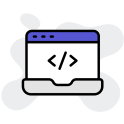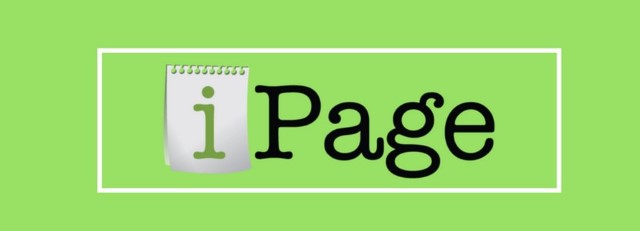10 Essential Coding Tips Every Beginner Should Know Before Building A Website

Coding is like solving a very fun puzzle on the Internet. It helps you build websites that people can visit. You cannot jump into website creation without knowing the basics. Many beginners struggle because they do not follow a proper learning path. Learning a few key tips early can save time and avoid frustration. These essential tips will make your first coding journey easier and smoother.
Understand HTML, CSS, And JavaScript
When you begin coding, HTML, CSS, and JavaScript are your 3 superheroes. HTML is like the bones of the website. CSS is the colourful skin and clothes. JavaScript makes the bones move.
You must know their jobs if you want to create a good website. HTML is important for adding content and structure. CSS will make everything look stylish and better. JavaScript gives your website extra power, like animations and button clicks.
Do not rush to learn all at once. Websites like Khan Academy and Codecademy make learning easier step by step.
Plan And Design Before Coding
Always sit and think before you start typing code. Planning the website first will help you. Beginners sometimes begin coding without a clear idea. Beginners sometimes begin coding without a clear idea. This creates extra work later.
You can sketch your ideas on paper. You can also use tools like Figma. Figma is good for drawing website designs. Planning saves stress and fixes mistakes early. When you design it first, your website looks better.
Start With A Simple Project
Do not build a big website as your first project. Small steps make confidence grow. Start by making a personal blog or a simple webpage first. It is like climbing a small hill before a mountain. It is like climbing a small hill before a mountain.
Simple projects teach you how things work. You can try making a contact form or a page about your hobby. If you do small tasks correctly, big tasks will feel easy later.
Keep Your Code Clean And Organised
Messy code confuses you and others. Clean code is like keeping your room organised. If your room is bright and clean, finding anything is easy.
Always use proper spaces and tabs in your code. Write helpful comments in between lines of tiny detail. Comments remind you what a line of code does. Follow DRY rules, which means “do not repeat yourself”. It saves time and prevents needless writing.
Use A Code Editor or IDE Suited For Beginners
Choose the right tools for coding. Code editors like Visual Studio Code and Notepad are simple to use. These tools are not expensive because they are mostly free. The tools save you time and make your work neat.
Use editors that have syntax highlighting. Use editors with automatic suggestions, too. They light up your code like a colouring book. Tools like this help catch mistakes fast.
Learn The Basics Of Responsive Design
Your website should look good on mobile screens. If a page looks bad on phones, visitors will leave. Beginners must learn responsive design for this reason.
Use CSS media queries to make sites mobile-friendly. Learn about frameworks like Bootstrap. Bootstrap makes responsive designs faster to create. Learning this skill early will make every website you build better.
Understand Version Control And Use Git
A mistake or accident can ruin your hard work. A mistake or accident can suddenly ruin your project forever. Version control keeps your code safe by saving older copies. Git is a powerful way to track your code versions.
Git stores changes step by step. GitHub lets you work with friends on projects, too. New coders should learn commands like git init, git commit, and git pull. These tools are helpful and simple after practice.
Test Your Website Across Browsers And Devices
Coding is fun when it works everywhere. Your site must look the same on Chrome and Safari. Test your creation on several browsers before showing it to the public. Test also on tablets and computers.
Use testing platforms like BrowserStack if possible. The Chrome Dev Tools are very useful for debugging. Fix issues you spot during testing to improve your website. Fixing errors in the testing stage avoids problems later.
Learn The Basics Of Debugging
Errors are common for coders, big or small. Learning to debug makes you fearless and fixes problems. You must know how to search for bugs in the code you wrote.
Every new coder should learn browser developer tools. Chrome has great dev tools to spot common issues. Debugging is like step-by-step problem solving. So never panic, stay calm, and fix the silly errors.
Continue Learning And Practising Regularly
Coding is a slow and steady marathon. The more you practice, the better you improve. Constantly learn new things and push yourself. Technology does not remain still. Learning keeps you updated.
Websites like FreeCodeCamp and Codepen are good for challenges. Practice tiny exercises daily. Tiny challenges make you smarter every day. Never stop being hungry for coding knowledge.
FAQs
What Should I Learn First When Coding?
Start learning HTML because it builds the structure and base of any website.
How Do I Keep My Code Clean?
Use proper indentation and comments, and avoid repeating the same code.
Is Git Only For Advanced Coders?
No, beginners must learn Git’s basics like saving and tracking changes early.
Can I Test My Website For Free?
Yes, many tools like Google Chrome Developer Tools are free to use.
Conclusion
These 10 coding tips will help you start the right way. Every beginner struggles in the beginning. But taking small steps makes the journey easier. Anyone can code websites with patience and practice. Follow each tip step by step and start creating today. Practice smart coding regularly to become skilled in no time.



Leave a Comment